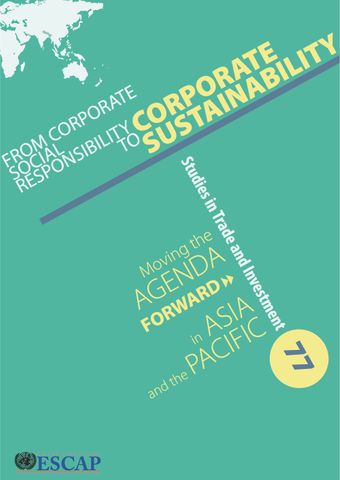Preface

- Author: United Nations Economic and Social Commission for Asia and the Pacific
- Main Title: From Corporate Social Responsibility to Corporate Sustainability , pp 4-4
- Publication Date: December 2013
- DOI: https://doi.org/10.18356/474abee0-en
- Language: English
Corporate social responsibility (CSR) has been a well-known concept for some time though the interpretation of this concept differs among countries, companies and stakeholders. In many cases, CSR has been abused as a marketing ploy, masking unsustainable practices of companies, in others it has simply constituted a charity event, again, often to mask the negative impacts of companies’ operations. However, the winds of change are blowing, in particular in the wake of the United Nations Conference on Sustainable Development (Rio+20). Increasingly, companies are adopting sustainable business practices as an integral element of their corporate strategies, which is the true meaning of CSR. In fact, some companies have gone beyond the traditional interpretation of CSR and either engage in social or impact investment and/or play active roles in development cooperation, including the provision of disaster relief and humanitarian assistance. In this regard, the concept of CSR has evolved and today is often referred to as “corporate sustainability” or “responsible business practices” to avoid confusion with the narrow (and wrong) interpretation of traditional CSR as charity events.
© United Nations
ISBN (PDF):
9789210564779
Book DOI:
https://doi.org/10.18356/9eb8132c-en
Related Subject(s):
Economic and Social Development
Sustainable Development Goals:
-
From This Site
/content/books/9789210564779c001dcterms_title,dcterms_subject,pub_keyword-contentType:Journal -contentType:Contributor -contentType:Concept -contentType:Institution105
/content/books/9789210564779c001
dcterms_title,dcterms_subject,pub_keyword
-contentType:Journal -contentType:Contributor -contentType:Concept -contentType:Institution
10
5

